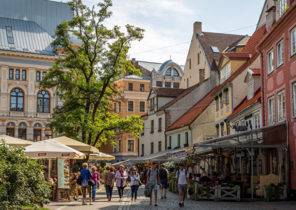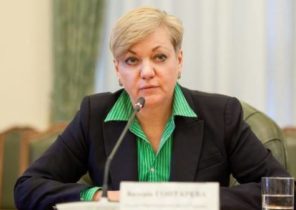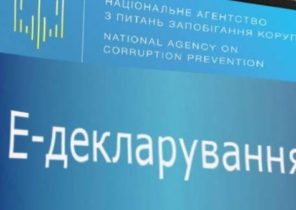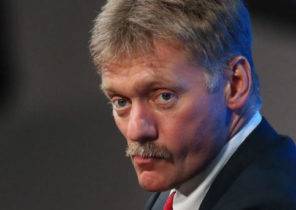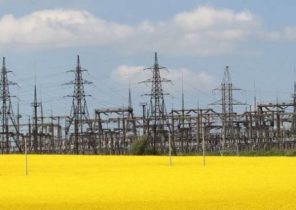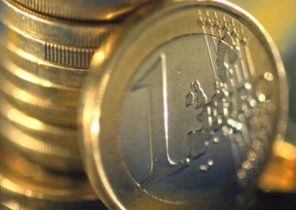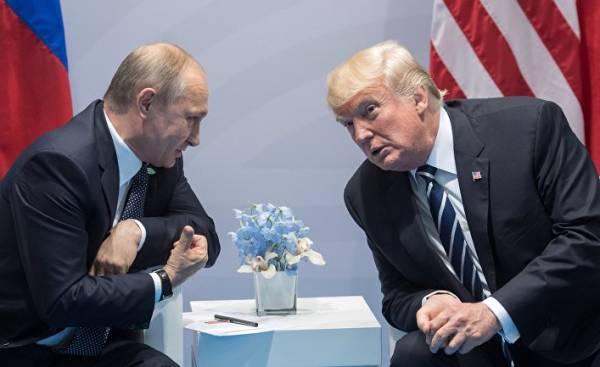
When President trump will meet with Vladimir Putin in Hamburg on Friday, he will need to put aside any thoughts about the new “reset” us-Russian relations. This is necessary because the role that Russia played in the 2016 elections in the United States, but because any compromise in the U.S. deterrence posture against Russia further complicate an already dangerous international situation.
American and Russian officials mention the Ukraine and Syria as the areas where it is possible to achieve agreements. However, the sanctions imposed against Russian associates of Putin, but also against the banking system and the energy industry are required in order to prevent the resumption of war in Ukraine. After 10 of thousands of dead on both sides, including 3 thousands of civilians, Russia is building a new rail line along the border of Ukraine, which will allow to transport troops to the South. At the same time, Moscow is preparing to host in September this year, the largest since 1991 military exercises in which, it is estimated, will be attended by from 400 thousand to 500 thousand troops.
Regardless of whether Russia is ready to attack or not, it has not achieved its goals in Ukraine, and she, in particular, failed to overthrow the existing government. The Ukrainian army is improving rapidly. At the same time, American and European sanctions have enormous losses with close friends of Mr. Putin, who as believe, are only the nominal owners of significant assets worldwide, while the real beneficiary is Putin. Maybe that’s why Russia has abandoned plans to cut the “Novorossiya” from Ukraine.
Last month, Syrian tanks broke the line of demarcation between the Russian-backed Assad’s forces and supported by the United States of the Syrian democratic forces led by Kurdish groups. Syrian fighter-bombers began to drop bombs near supported by the United States forces, and the U.S. he was shot down. After that, the Russians had threatened to shoot down coalition aircraft. After several very tense hours the Russians agreed to defuse the situation — until the next time.
Even more inappropriate are doing a “reboot” signs of Moscow’s involvement in terrorism in Ukraine, in Western Europe and in Russia itself. 27 Jun Maxim Shapoval, Colonel of military intelligence of Ukraine, was killed in the explosion of his car in the center of Kiev. Pavel Sheremet, a critic of the Kremlin who worked in the Internet edition “Ukrainian Truth”, was killed in the same way in Kiev on 20 July 2016. Russia and Ukraine “are unable to protect him.” March 23, Denis Voronenkov, who fled to Ukraine, former Russian legislator, was shot dead at the entrance to the hotel Premier Palace Hotel. In addition, an attempt was made to kill Amin Okueva and her husband of Amada Osmayev, a Chechen who fought on Ukraine’s side in Donbas. Arthur Denislav-Kurmakaev, the Chechen killer, posing as a French journalist, opened fire on them, but Ms. Okueva four times has shot at the murderer. Both were wounded, but survived.
Mr. of Denislav-Kurmakaev previously worked in Western Europe on the instructions of the Pro-Russian Chechen leader Ramzan Kadyrov, and many members of the Chechen Diaspora living in fear of the Russian-backed killers.
There are also questions about terror in Russia. April 3 this year in the subway of the city of St. Petersburg was bombed and 14 people were killed, many of them were students. The explosion of the bomb occurred a week after which was held nationwide anti-corruption protests, in which young people played a major role. After this attack, the Deputy of the Duma of Yury Shvydkin proposed to introduce a moratorium on public protests.
Opposition leaders in Russia reported that the Russian Ministry of emergency situations reported two explosions, one occurred near the station “Technological Institute” and the other on the red line. A second bomb was found unexploded in the car on the red line, and the question arises: How the authorities found out about the second bomb before it was discovered?
Mr. trump needs to stick to a formal exchange of positions in order not to be caught up in false logic. Putin’s regime believes that the interests of the state with which he identifies himself, more important than any objective reality. When Mr. Assad used chemical weapons, Mr. Putin said that the accusations against Syria are “a provocation”.
After in July 2014 in the sky over Eastern Ukraine was shot down Malaysian airliner MH17 (then killed 298 people), Russians said that it was destroyed by a Ukrainian rocket, and accused of bias by the Dutch investigators. In fact, this missile was fired from Russian-supplied anti-aircraft missile launcher “Buk”, and the trace start it with separatists held territories were recorded data from satellites.
Recently, when the United States announced plans to deploy elements of high-Altitude zonal system of missile defense in the theater of military operations (THAAD) in South Korea, the Russian Deputy foreign Minister Sergei Ryabkov said that the time has come to put an end to “demonizing North Korea”. When confronted with this kind of mentality, Mr. Trump will have to show that attempts at deception will not work. Although the specific, narrow agreements are possible, it should also show that the United States is prepared to deter Russian aggression.
The protest movement has again appeared in Russia. Denis Volkov, a researcher from the Levada Center, explained the popularity of the leader of the protests, Alexei Navalny among Russians. “He focuses on simple but important questions: no need to lie, steal and be a hypocrite, — underlines g-n wolves. Corruption and bribery is bad”. Against the background of such appeals, the United States can not enter into unprincipled deals with Mr. Putin, if Washington wants to have some influence on the fate of Russia in the coming years.
Mr. Satter has partnered with Guzikowski Institute and Johns Hopkins University. This summer in paperback his book “the less they know the better: Russia’s Path to terror and dictatorship under Yeltsin and Putin” (The Less You Know, the Better You Sleep: Russia’s Road to Terror and Dictatorship under Yeltsin and Putin).
